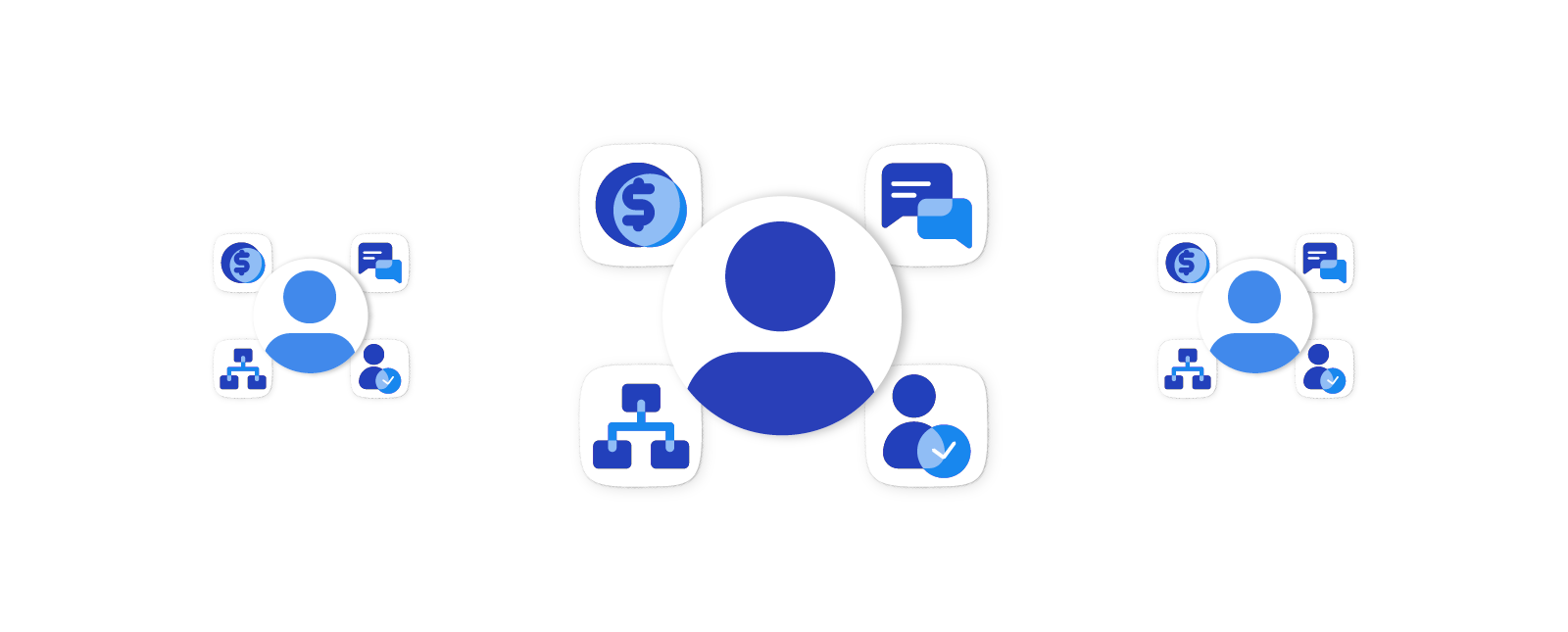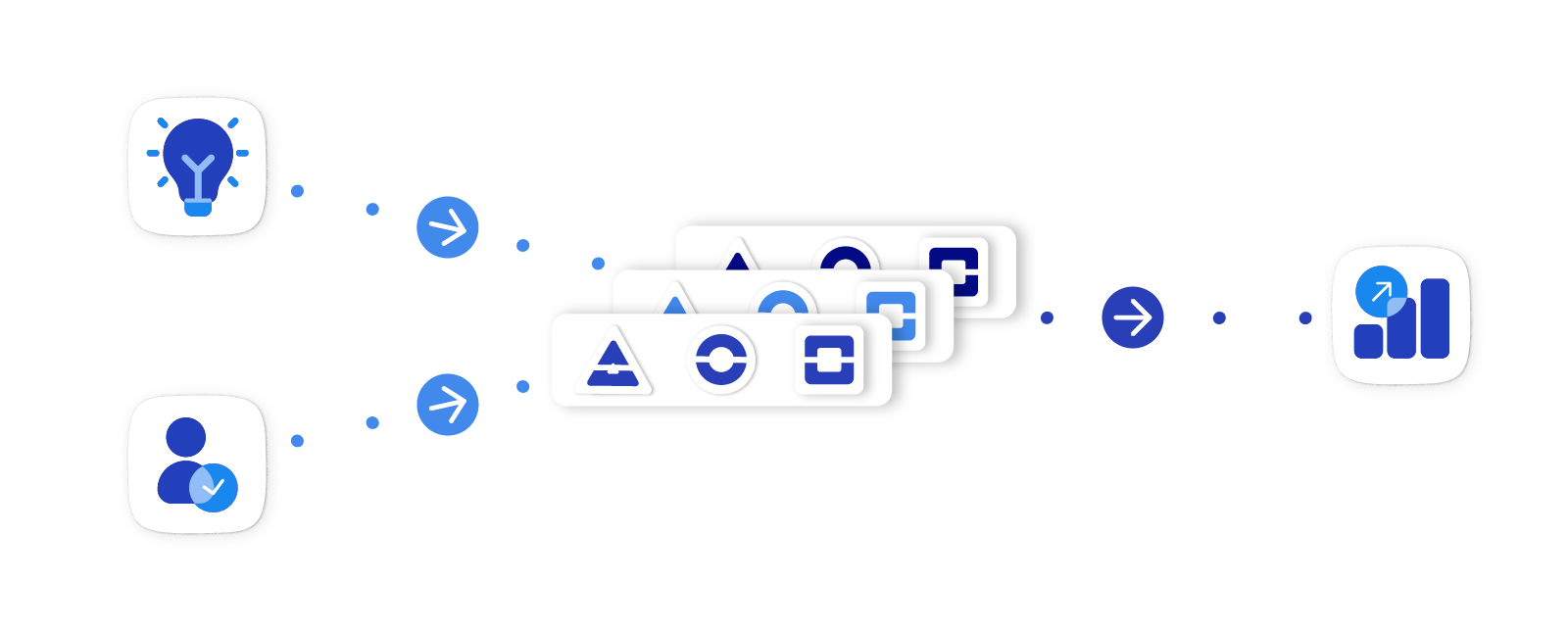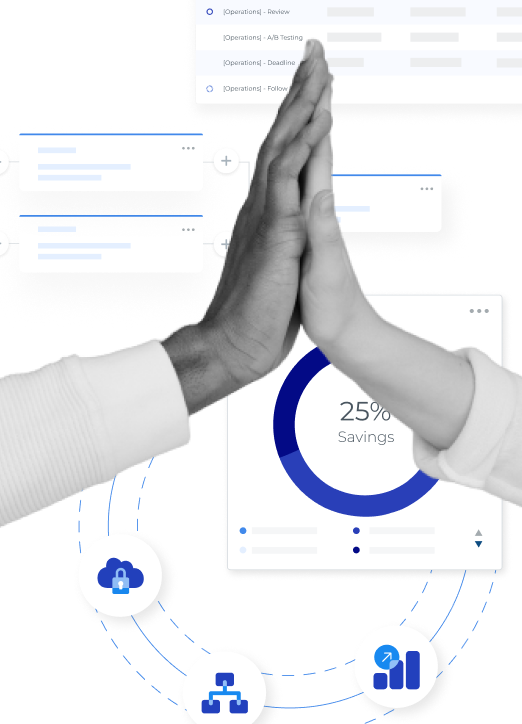Today, organizations prioritizing a data-centric approach are gaining a competitive edge over their peers.
However, building and managing a scalable data infrastructure is not enough. To make the most of their data, organizations must have the right team in place—an empowered team that uses data and uses it well.
This article will explore the key characteristics of a data-centric dream team and give actionable tips on building one.
From cross-functional expertise to continuous learning, it will cover everything you need to know to ensure your organization has the right team to take advantage of your data and drive growth and success.
The Ideal Data Culture
In a truly data-driven organization, data is a way of life. From top to bottom, every employee is equipped with the skills and tools needed to locate, analyze, and use data to make informed decisions that drive business growth.
A data-aware culture empowers employees to use data alongside internal research, personal experience, and insights to drive results. It is characterized by several key elements that enable employees to leverage data to make informed decisions and drive innovation.
Democratization and Accessibility of Data
Firstly, an ideal data culture prioritizes accessibility and democratization, ensuring that data is accessible to all stakeholders in the organization, regardless of their technical expertise. It requires a democratized data infrastructure that makes accessing, analyzing, and sharing data simple.
Ensuring Data Quality and Consistency
Accurate and consistent data is also paramount in an ideal data culture, and strong emphasis should be placed on data quality to ensure reliable and high-quality data.
To achieve this, organizations should implement data governance policies, data validation processes, and other quality assurance measures.
Data-Informed Decision-Making
Thirdly, an ideal data culture uses data to inform decision-making at all levels of the organization. It requires encouraging stakeholders to use data with research, personal experience, and insights to support their decisions.
Data as a Strategic Asset
Furthermore, data is seen as a strategic asset that can provide a competitive advantage in an ideal data culture. Organizations must be willing to invest in the necessary infrastructure and talent to support data-driven decision-making.
Continuous Improvement through Data Analysis
Finally, an ideal data culture continuously analyzes and improves data over time. Stakeholders use data to identify areas for improvement and to test and refine new approaches. By doing so, they can make better decisions and optimize their performance.
Building the Right Team
Having a team on board with a data-centric approach to business is critical for achieving growth and success. To build such, organizations should consider several key characteristics.
Cross-Functional Expertise
First is cross-functional expertise. Besides data expertise, the team should have cross-functional expertise in marketing, operations, finance, and customer experience to contextualize data and provide actionable insights that can be applied across different areas of the organization.
Curiosity and Critical Thinking Skills
The ideal team should also possess curiosity and strong critical thinking skills. These individuals should be able to ask the right questions, challenge assumptions, and identify areas for improvement based on data. A team with these characteristics can use data to uncover valuable insights and drive informed decision-making.
Collaborative and Interpersonal Skills
Another key characteristic to consider in an ideal data team is collaboration. Collaboration enables an organization to align its goals and strategies with data-driven insights. The team should possess strong interpersonal skills, work collaboratively with other stakeholders across the organization, and ensure that data-driven insights are effectively communicated and acted on.
Commitment to Continuous Learning
Finally, the ideal data team should be committed to continuous learning and development. The team must stay up-to-date with the latest data tools and technologies, attend conferences and training sessions, and actively seek feedback to improve their skills and abilities. With a team committed to continuous learning, an organization can stay ahead of the curve and remain competitive.
By prioritizing these characteristics, organizations can build a team equipped to leverage data to drive growth and success.
The Far-Reaching Benefits of a Data-Centric Team
Besides organizations becoming more productive and profitable, building a data-centric team can positively impact employee happiness and job satisfaction.
Employee Happiness and Job Satisfaction
Empowering employees to engage in strategic planning and creative problem-solving not only fosters a sense of ownership and investment in the organization’s success but also leads to increased motivation, job satisfaction, and overall happiness among employees.
When they feel valued and supported in their work, they are more likely to feel fulfilled and engaged, which can lead to better employee retention and attraction of top talent.
Improved Decision-Making and Problem-Solving
Additionally, a data-centric approach to building a team can lead to better decision-making at all levels of the organization.
When stakeholders use data to inform decision-making, they can have a more comprehensive understanding of the organization’s strengths, weaknesses, opportunities, and threats. This leads to more effective problem-solving, improved customer experiences, and, ultimately, a more successful organization.
Enhanced Customer Experiences and Business Success
Thus, the benefits of a data-centric team extend far beyond just increased productivity and profitability.
By fostering a collaborative and empowering work environment that prioritizes data-driven decision-making, organizations promote innovation, creativity, and continuous learning among their employees, boosting their motivation, job satisfaction, and overall happiness.
Building and Developing a Skilled and Diverse Team
Whether you are just starting or looking to optimize an existing team, the key is to focus on developing a diverse and skilled team that can work together to turn data into actionable insights.
By investing in your team’s development and providing the resources and tools they need to succeed, you can build a culture that embraces data-driven decision-making and creates a competitive advantage for your organization.
At Kizen, we can help empower your team with the skills, resources, and tools they need to thrive in today’s data-centric era. Connect with us on our website, and we’ll schedule a time to chat.










